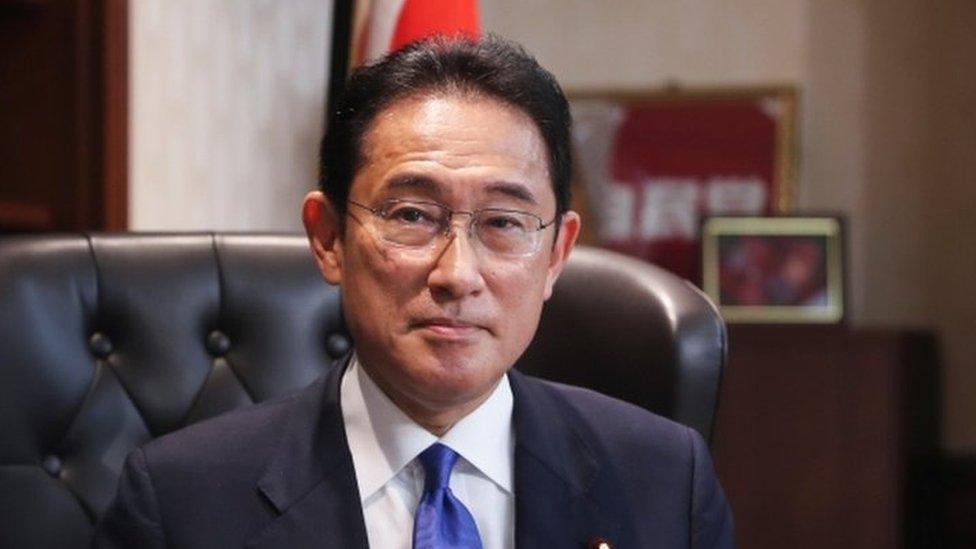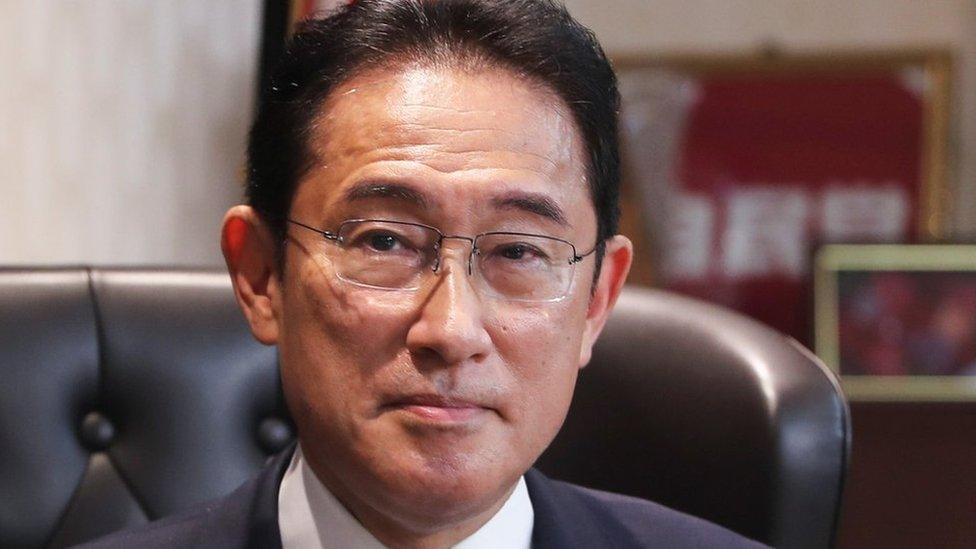Fumio Kishida: Japan's new prime minister takes office
- Published

Fumio Kishida won the race to lead Japan's ruling Liberal Democratic Party (LDP) last week
Fumio Kishida has formally taken office as Japan's new prime minister, succeeding Yoshihide Suga who resigned after just one year in office.
Mr Kishida, 64, won the race to lead Japan's ruling Liberal Democratic Party (LDP) last week.
He will face a range of tough issues, including post-pandemic economic recovery and threats from North Korea.
He will also hope to help his party regain popularity after its unpopular push to host the Tokyo Olympics.
The move to go ahead with the event came despite massive public opposition due to concerns over a surge in Covid cases.
Mr Suga decided to step down as prime minister after a year in office due to plummeting poll ratings caused by the handling of the pandemic.
Mr Kishida will now lead the LDP into a general election that must be held by November. Local media reports say Mr Kishida is expected to call for polls by 31 October.
The new cabinet members under Mr Kishida are due to be announced later today.
"I think it will be a new start in its true sense," he had earlier told reporters. "I want to take on challenges with a strong will and firm resolve to face the future."
He has long targeted the prime ministerial role, and lost out to Mr Suga in last year's poll.
According to the BBC's Mariko Oi, Mr Kishida is known as a moderate-liberal politician so he's expected to steer the ruling conservative party slightly to the left.
While his critics describe him as bland and boring, he's long been seen within the party as its future leader, our correspondent adds.
He is also known to have the backing of the party's veteran politicians.
But order to maintain their support, Mr Kishida may have to toe the line on party reforms and ensure he also caters to its conservative elements.
If he fails to do so, Mr Kishida risks emulating Mr Suga in having a short tenure as leader, heralding a return to the pre-Abe "revolving door" era which saw six prime ministers between 2006 and 2012.

Who is Fumio Kishida?
Mr Kishida, 64, hails from a political family. Both his father and grandfather were members of the country's House of Representatives
He became the longest-serving post-war foreign minister, holding the post from 2012 to 2017
A Hiroshima native, he opposes the use of nuclear weapons, having seen the impact on his home town
Mr Kishida arranged President Barack Obama's 2016 visit to Hiroshima, the first visit to the bombed city by a sitting US president

You may also be interested in...
Kenyan manga artist Shin on his passion for Japanese comics
Related topics
- Published29 September 2021
